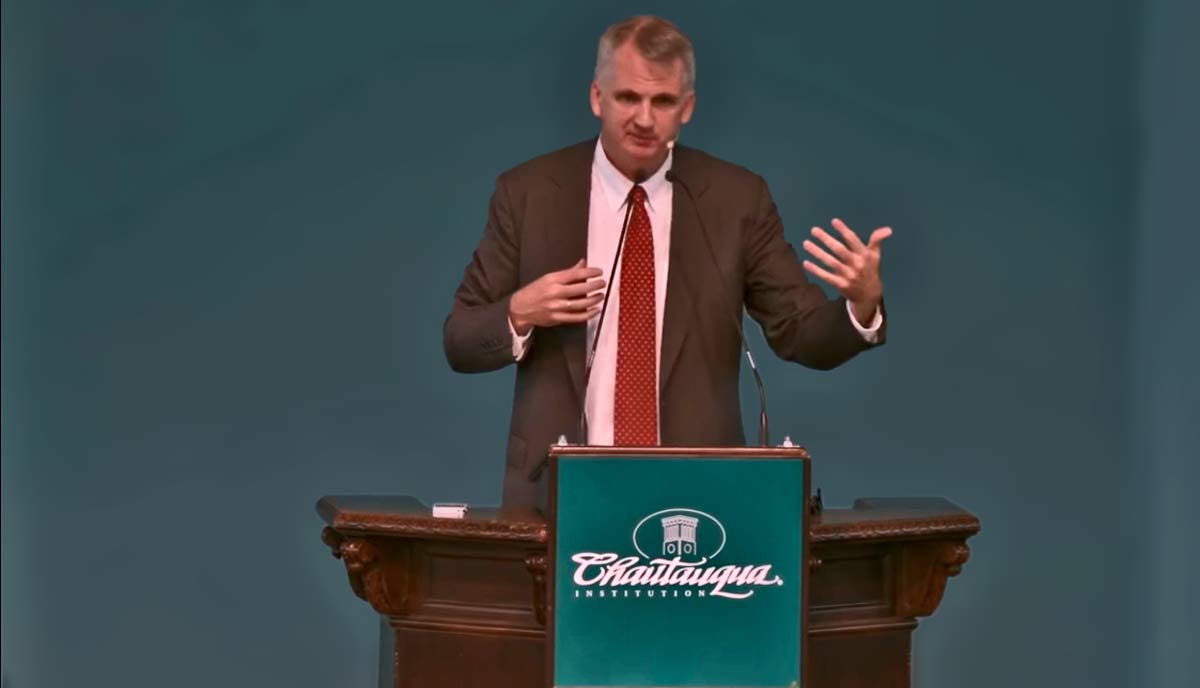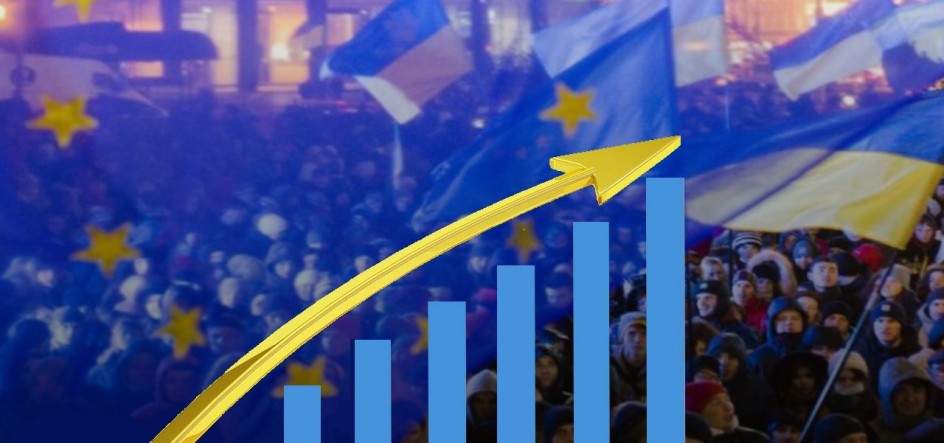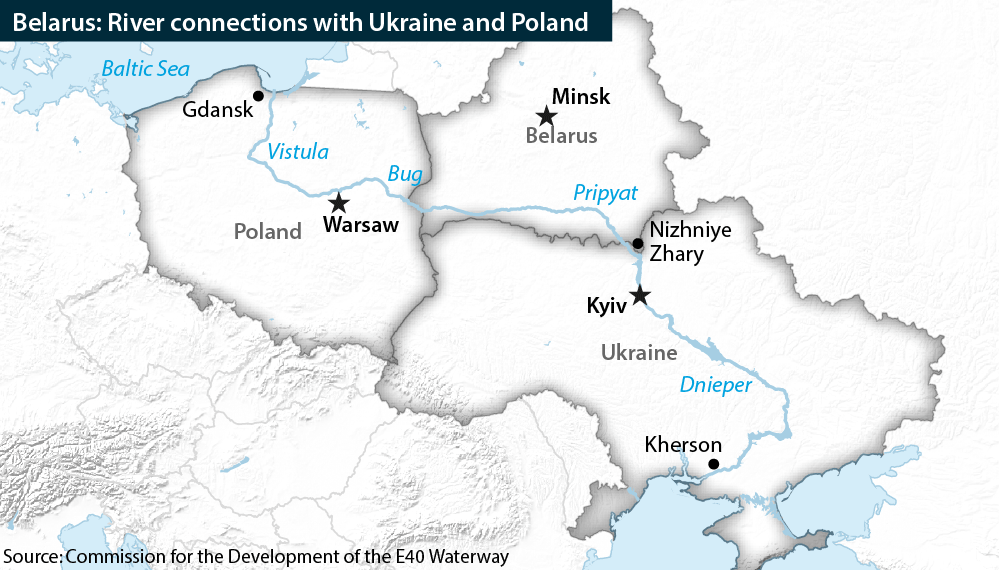Ukraine took part in all stages of European history
The history of Ukraine makes no sense outside the European context, Snyder explains in his “Ukraine: The End of Europe?” lecture, presented at the Chautauqua Institute in 2016.
In 1241 the Mongols destroyed Kyivan Rus, but the legacy of its laws that had been codified in Slavonic, “a language of religion,” survived when the Duchy of Lithuania gathered in most of the territories which had been part of Rus, and adopted its laws.
It was only because a relative of Batu Khan died and the Khan was summoned back for the funeral that Kyivan Rus became the last country the Mongols sacked.
Read more on Kyivan Rus:
- Anna of Kyiv, the French Queen from Kyivan Rus
- Ukrainian conflict is between ‘heirs of Kyivan Rus’ and ‘heirs of Golden Horde
- How Moscow hijacked the history of Kyivan Rus’
- Ukrainian suggestion that Russia should be called Muscovy infuriates Russians
- Why Ukraine needs a free and recognized Orthodox Church
- The life and death of people in medieval Ukraine, told by a paleoanthropologist
While the “legal package” was absorbed by the Duchy of Lithuania, the religious legacy stayed within Kyivan Rus and spread to Muscovy, what is now Russia.
Ukraine took part in all the stages of European history, including the Renaissance. Ukraine was part of Reformation in an extremely interesting way. The big landholders in Ukraine gave shelter to radical protestant denominations. People who were fleeing from repression in Central and Western Europe actually settled on the estates of huge Ukrainian landholders who tolerated them as a kind of demonstration of their goodwill. Muslims and Jews were tolerated too.
Like Europe, Ukraine went through Religious Wars which ended up with the absorption of the most of the territory which is now Ukraine into the Russian Empire. And again, this is typical, because the 18-19 centuries were the Age of Empire in Europe and around the world.
Russian history evolved devoid of European influence – Russia had no Renaissance, no Reformation – Kyiv brought the experience of the Renaissance and the Reformation to Russia after Kyiv became a part of the Russian Empire
After the collapse of empires, Ukraine was left with no controlling agency; within the Russian Empire, Ukraine had no means of establishing itself as a national state.
Read also: The Ukrainian Revolution of 1917 and why it matters for historians of the Russian revolution(s)
Stalin, USSR, and WWII
As Snyder notes,
“…between 1933 and 1945, in the time when both Hitler and Stalin were in power, Ukraine was the single most dangerous place to be…”
Stalin unleashed the Holodomor and the Great Terror to completely subjugate Ukraine. Russia and Ukraine remember Stalinism differently; for Russia, it is easy to whitewash Stalinism since more of the crimes occurred “in the periphery.”
Read also: Half of Russians say Stalin’s repressions justified by results
The memory of World War II is viewed differently by Ukrainians and by Russians, as well. All of Ukraine was invaded by Germany; 5% of Russia suffered under the Germans.
Russia sees WWII as a heroic page in their history; being the target of Hitler’s plan to colonize Ukraine for Ukraine’s fertile soil, World War II was a total catastrophe for Ukrainians.
Between 1918 and 1991 Ukraine did not exist as a state. Now the Ukrainians see Europe as an escape route from the Soviet past and all the horrors that had been perpetrated on Ukraine by Soviet Russia.
Read more on Ukraine under the Soviet rule:
- Ukrainians suffered three terror famines under the Soviets not just one
- The Holodomor of 1932-33. Why Stalin feared Ukrainians
- Remembering Soviet atrocities: Solovki and Sandarmokh
- The destruction of Ukraine’s folk singers
- Stalin starved populations to death to russify Ukraine
- Holodomor: Stalin’s genocidal famine of 1932-1933
- Soviets executed three times as many Red Army soldiers as Nazis executed
- Ukrainians discover stories of repressed relatives in newly opened KGB archives
- Chornobyl nuclear disaster was tragedy in the making, declassified KGB files show
Ukraine, EU, and Russia
In building a state, Ukrainians are seeking aid and support from Europe.
Timothy Snyder stresses,
“how do you build a state…how do you invent the rule of law…at what magical point do people start observing these interpersonal norms, how do you get from a world where corruption is totally endemic – and that’s the post-Soviet world – to where everyone obeys the law…how do you get from a world where bribery is what everyone does every day to a world where observing the rules is what everyone does every day…?”
“It is not every day, ladies and gentlemen, that more than a million people take to the streets,” Snyder says, reminding us of the Maidan Revolution. Ukraine is not just a place between East and West or a buffer between Russia and Europe. Ukraine is a country of 50 million people, a country that is building itself, a country that needs “a lot more money than is being offered.” And, Snyder suggests, what better Russian policy can there be than a firm Ukraine policy, a policy that in truly aiding Ukraine could start a transformation in Russia.
For the Russian leadership, the European Union and the rule of law pose an existential threat; according to the Russian leaders the EU must be destroyed, even though Russia has nothing to offer that’s better than the EU.
According to Snyder, Russia’s policy towards Ukraine is part of a much larger conclusion about what the future of Europe should be. And the basic conclusion is that the European Union should go. This means that Russia’s war in Ukraine is only one aspect of larger policy. The second aspect is the destruction of the European legal order.
The fact that Russia invaded another European country an annexed a part of its territory was an unprecedented breach of the legal standards and norms that prevailed in Europe since 1945.
Russia used the argument that they protect people who speak the same language, but this argument undermines the basic fundament of the international order.
If you say one country can invade another because of an ethnic minority, you have a recipe for a total global war, says Timothy Snyder and continues. “Likewise history – Russia claims that it has right to the entire history of Rus… therefore Kyiv isn’t in some sense part of its own history. Ok, that’s all well and good, but that means that let’s say London would be a part of American history.”
By supporting the fringe elements on the right and on the left of the political spectrum, Russia aims to break the EU apart into smaller pieces.
Russian propaganda
The Russian narrative that Ukraine has been run by fascists and the war was some kind of a crusade against right-wing evil was addressed to the European Left.
Another thing they successfully introduced was the narrative that Russia wasn’t actually invading Ukraine but was fighting a great war against the USA. According to this narrative, America had started all this and Russia just responded. The idea that the US is responsible for the conflict distracts Europeans from the very fact that the war is ongoing in Europe.
In propaganda of the Internet age, pure contradiction is possible. One sector of the public opinion was said that all Ukrainians are fascists, another sector was told that the existence of Ukraine is a part of the international Jewish conspiracy. This is contradictory, they can’t be all fascist and be run by Jews. But these are just two false narratives targeting the far left and far right.
Using such contradictions emerged to be surprisingly effective. For example, other contrary narratives in the Russian propaganda are:
- “There is no real Ukrainian state” vs “the Ukrainian state is very repressive”
- “The Ukrainian nation doesn’t exist” vs “the Ukrainians are all nationalists”
- “There is no Ukrainian language” vs “all Russians have been forced to speak Ukrainian in Ukraine”
Nobody really notices such contradictions of the narratives while the propaganda campaign against Ukraine has been going on for years.
Read more on Russian propaganda:
- A guide to Russian propaganda
- Seven strategies of domestic Russian propaganda
- Russian propaganda different and much more disturbing than its Soviet predecessor
- 15-point checklist of Putin regime’s propaganda techniques
- Email chains and other Russia’s propaganda tools
- Intimidation as a propaganda tool in the Nordic countries
- In the depths of disinformation: this is how RT propaganda works
- Kremlin disinformation and Ukraine: The language of propaganda
- Soviet myths about World War II and their role in contemporary Russian propaganda
- How the Kremlin influences the West using Russian criminal groups
Notable quotes from Timothy Snyder’s lecture
“Sanctions have to be a lot tougher… the information response had to be a lot better… and the main thing… what we can do is we can help the Ukrainian revolution succeed… and that means a lot more money, a lot more money than is being offered…”
“To what extent, in this age of the Internet, in this age of visuals, are we actually capable of seeing what’s going on, and to what extent are we pushed around by these tropes that are targeted at us?”
Read also:
- History as a weapon in Russia’s war on Ukraine
- History, Identity and Holodomor Denial: Russia’s continued assault on Ukraine
- Timothy Snyder: Yes to security in Europe
- Nazi dreams of an enslaved Ukraine: the blind spot of Germany’s historical memory – Timothy Snyder
- Timothy Snyder: Ukraine is but one aspect of a much larger strategy that threatens European order
- Memory of the Great Patriotic war in Russia’s expansionist policy





